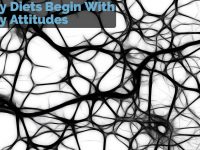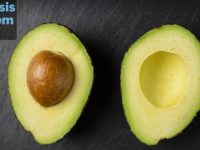Rock climbing is a weight-intensive sport. Every gram or ounce that makes up our being, we must drag up the wall, and thus many climbers seek to be as light as possible.
Unfortunately, weight loss is not a gimme for most people. While some can stay effortlessly lean, many struggle to change their habits to a sufficient extent and for sufficiently long to create real change. Given this challenge, an entire industry has arisen—and every player in that industry wants to convince you that they have the secret to easy, fast weight loss.
This article isn’t going down that road. In the future, I may do some write-ups on various diets and their strengths and weaknesses, but right now I want to give you—a climber who may or may not be interested in losing weight or being “leaner”—a primer on how to approach weight loss in a sensible, science-backed manner. Because losing weight isn’t magical, and being rational about it is the first step towards success.
Let the diet demystification begin.
#1: Do You Need to Lose Weight At All?
I always start here, and so should you. Do you really need to lose weight, and if so, how will it bring you closer to your goals? Be critical and drive at the heart of what you need. Regardless of the answer, it forces you to evaluate your game plan—and hopefully make the right decision.
What exactly are your goals? Are you trying to finish a project? Do you want to increase your strength-to-weight ratio? Are you overweight or obese? Are you dissatisfied with your appearance? It need not be a single goal; it could be multiple goals with varying levels of importance.
If your primary goal is simply to be stronger, then losing weight may not be the quickest or easiest road to success. You may be better off evaluating your training or diet in the context of strength gain. Weight loss may seem like the right move, but every pound you lose offers diminishing returns—and eventually, you’ll bottom out. Strength isn’t as limited; chances are you can gain strength easier than lose weight, especially if you have a minimal amount of weight to lose.
On the other hand, if you’re overweight or obese, then losing weight may be the most direct route to getting stronger, and has the added benefit of increasing health. Focusing on weight loss, therefore, may bring better results than focusing on strength gain. If you’re not overweight or obese but could lose upwards of 20% of your bodyweight without dropping below a healthy weight, then you too may benefit from losing weight in the range of 5-15%.
The bottom line is that you should focus on your primary goal, and be realistic about how likely weight loss is to bring you closer to that goal. I’m not saying there’s never a place for already lean individuals to attempt to cut fat further, I’m just saying you should time it appropriately. When you’re projecting or training hard, cutting energy in order to cut fat will not yield positive results; the time for losing weight isn’t when you’re going hard, but when in-between your periods of training when your goal is merely strength maintenance.
#2: All Weight Loss Happens Through a Caloric Deficit
You body is like a bank for calories, and your adipose tissue is the vault. Any calories you add that you cannot use will be added to the vault, and the only way to get calories out of that vault is to provide too few to cover your daily needs.
A lot of diets pretend that they somehow have overcome the laws of physics—which state that energy cannot magically appear or disappear (first law of thermodynamics)—but they’re either lying to you or the people behind the diet don’t understand science. Every calorie that you absorb will be accounted for. Excess calories will be stored as fat, tucked away into your vault for later use. When those calories are needed, they are removed and the fat molecule is metabolized into carbon dioxide and water. Poof—the conservation of both mass and energy, the laws of physics are upheld!
Of course, there are nuances here: different calories are more or less difficult to metabolize (they require more or less energy to process); not all calories will be absorbed; where your calories go will depend on their need (if you need to build muscle tissue, that will absorb calories). But at the end of the day, no calories have disappeared without a trace—every single one will be stored or used.
#3: There Is No Such Thing as the “Perfect” Weight Loss Diet
Every diet pretends to be a perfect solution for everyone; no diet begins with a disclaimer that it is as unlikely to be successful for the dieter as every other diet they’ve tried. Despite clear evidence that the perfect diet is a fantasy, though, many still subscribe to the idea that there are better diets and worse diets. The reality is there aren’t—aside from truly horrible diets that no person concerned with their long-term health should follow, most diets are equally as effective (or ineffective, if you’re a pessimist).
The right question to ask, therefore, isn’t “Is this diet effective?”, but rather “Will this diet be effective for me?” This is the big part of the picture that so many diet fanatics miss. While low-carb zealots are busy sparring with high-carb crusaders, both are missing the fact that both diets have worked for some people and failed for many times more; Paleo and vegan diets have both created nearly equally numbers of success stories and failures. The difference isn’t within the diets themselves, but within the person following the diet—some people are better suited to the rules of one diet than another!
So don’t get caught up in the dogma of any particular diet. If it works for you, great; if it doesn’t, then move on. Don’t feel obligated to continue with a diet that you hate just because your best friend got amazing results with it. Don’t let others chastise you for making dietary decision that work for you that don’t work for them. Do what works, change the rules if you need to, and remember that no diet is perfect.
#4: All Diets Require Change
How many times have you heard that “dieting” is the wrong approach, and that whatever diet you follow should be sustainable long-term (as in permanently)? Well, I’ve got news for you: that’s a BS idea. No diet that results in weight loss is sustainable long-term because, as we read in point #2, all diets that result in weight loss must incur a caloric deficit. Nobody can eat a diet that is short on calories forever and survive.
Now, your diet should be as nutritionally complete as possible; it should contain all the vitamins, minerals, essential amino acids and fats, etc. that you need to survive. And, it should hopefully be sustainable short- to moderate-term—you shouldn’t want to break down after following it for only a week! But the basic fact of dieting is that it won’t be the exact same as the diet you would follow for weight maintenance. It will be short on calories, and probably different in a few other notable ways as well.
Break free of the idea that diets that force you to change your habits won’t be effective, it’s just a cliche. All diets require change—change is practically the definition of “diet”! If a diet didn’t require you to change, then losing weight would be a thing.
#5: There Is No Weight Loss Supplement That Is Truly Effective
If you’re already putting the work into losing weight, adding a supplement can help you out, right? Wrong. Nearly every weight loss supplement on the market is ineffective when tested in humans, or at best minimally effective. We’re talking about either no effect whatsoever or, at best, losing an extra pound over the course of a long-term diet.
The supplements that could work are all either illegal, dangerous, or both. That’s probably because for a weight loss supplement to really be effective, it would have to exert a tremendous effect upon your metabolism—and “supplements” that do that (like cocaine) tend to have many other unwanted side effects.
Skip the weight loss supplements; spend the money on better foods instead.
Next Week: More Tips
If you’re disheartened that this week covered more of the “what not to do” aspects of weight loss, then stick around for another week because I’ll cover a bit more practical tips for what you should do when you decide to begin. Again, none of these tips will be an endorsement of any particular diet or dieting style, but rather tips to encourage science-driven weight loss—that is, weight loss with a greater chance of success.
Until next week!















While it’s true that “There Is No Weight Loss *Supplement* That Is Truly Effective”, there are prescription drugs that are both safe, proven effective, and fda approved: notable phentermine and belviq.
Good article once again. Keep up the good work.
However for #2 its far from certain that all weight loss is a result of caloric restrictions. High Fat Low Carb diets don’t usually restrict calories. The only restriction is carbohydrates, either below a certain fixed amount (ie. grams) or as a percentage of the whole diet. The idea about calories having to go somewhere is of course correct, but where they end up can depend on the type of calories they are. Carbohydrates, particularly simple carbs like sugars, cause insulin spikes and insulin plays a big role in what happens to those calories and thus determining whether we are overweight or not.
Related to this is the fact that caloric restriction doesn’t always work. In lab experiments with rats even those on semi starvation diets have sometimes failed to lose fat. What happens is they just become very sedentary to conserve the fat.
The failure of the medical profession to sort out the obesity crisis has lead to a paradigm where the patients must be to blame: they’re fat because either they’re greedy or their slothful. A more modern understanding suggests this is not the case. Rather than thinking overeating is making them fat, its the other way around. They eat more to compensate for the fact that the calories they eat are being turned into fat. If they didn’t ‘overeat’ then they’d have no energy and thus be blamed for being slothful or sedentary.
There are several good books exploring the above. I recommend science writer Gary Taubes’ excellent and well researched book ‘Why We Get Fat and What to do About It’.
Yes, precisely—drugs aren’t supplements. It can sometimes be a tenuous line between the two, though. For example, many herbal supplements could be considered unregulated drugs (the ones that have actual effects, anyway), but are still considered to be supplements by most people. In the context of this article, I mainly mean that nothing that is regulated as a supplement (which is to say not regulated) is effective, not that nothing at all is effective.
Good article generally but i disagree with the statement in #4, that a diet which enables weight loss is unsustainable long. Imagine a 70kg person eats x to maintain that weight, but decides to drop down to 60kg. That person can potentially reduce comsumption to the point where they lose 10kg, by eating enough to fuel a 60kg person. Once they reach 60kg, their weight will stabilise and if consumption remains the same they will not gain, nor lose. I know because ive done it, and know many others who have too.
#2 is a gross simplification of how the body responds to food consumed. 2000 calories of carbohydrates is handled by the body in a vastly different way than 2000 calories of fat. The ‘calories in, calories out’ model used to explain weight loss/gain is deeply lacking in nuance, and as it stands, if flatly wrong.
A calories is NOT a calorie.
You’ve made a straw man of my argument; at no time in point #2 did I state that every calorie consumed is metabolized equally. In fact, I specifically said they were not.
You are right, I made a straw man. But my greater point is this: the calorie in/calorie out model of weight loss and gain doesn’t, on its own, hold water.
“The only way to get calories out of that vault is to provide too few to cover your daily needs” is a gross oversimplification for weight loss. On average, if glucose or glycogen is available–even while operating in a calorie deficit–the door to that vault is not going to open.
Macronutrient profile, metabolic pathways, hormones, cell receptor sensitivities, and dozens of other factors converge in an individual’s specific weight loss or gain. To simply say “weight loss happens through a caloric deficit” is vague and misleading to a group of readers who may be putting trust in your advice.